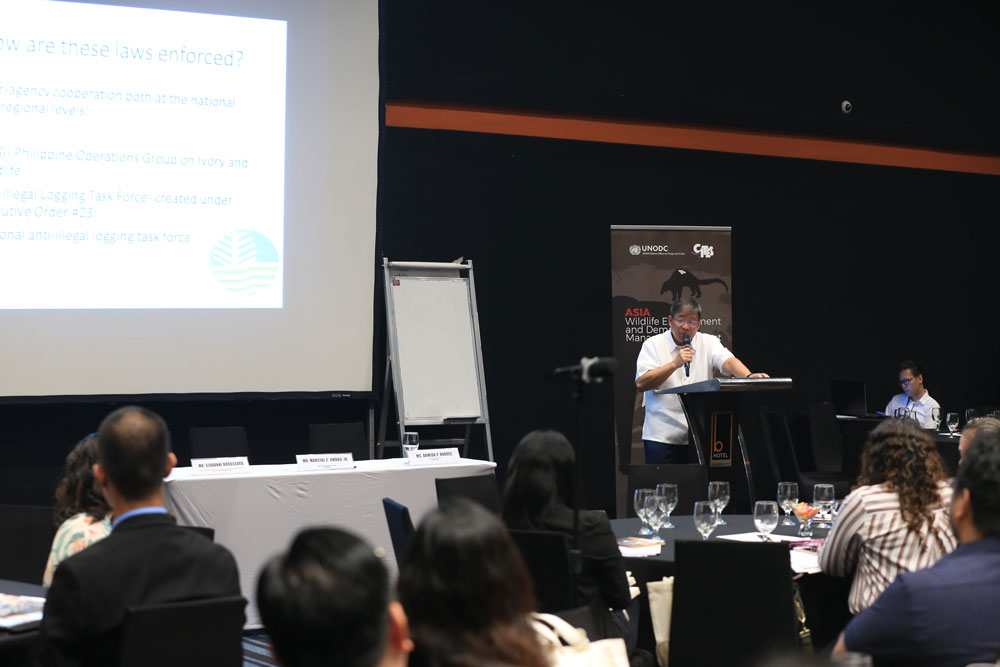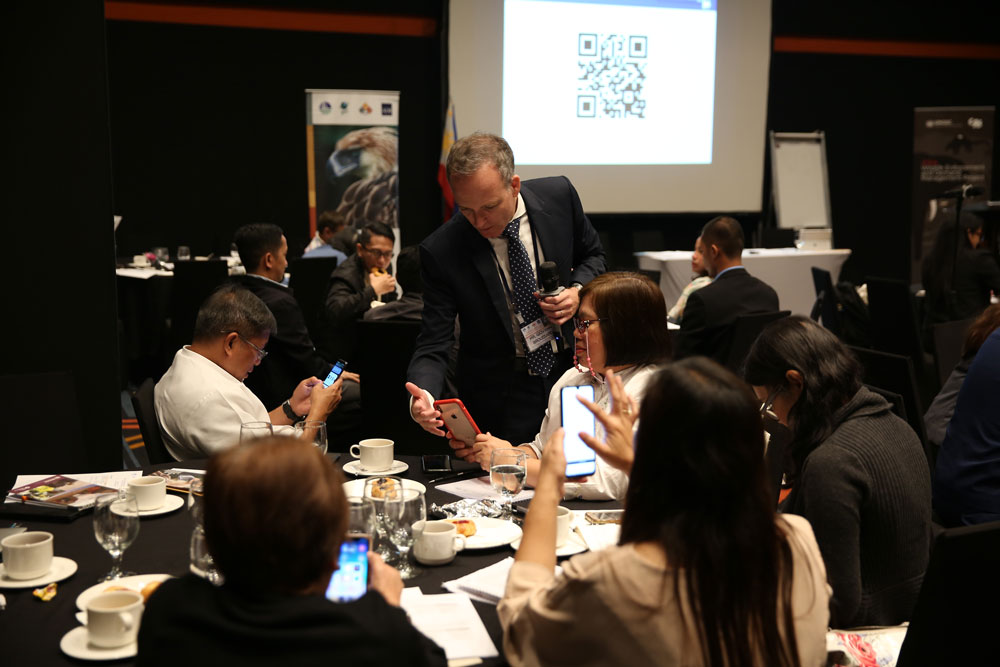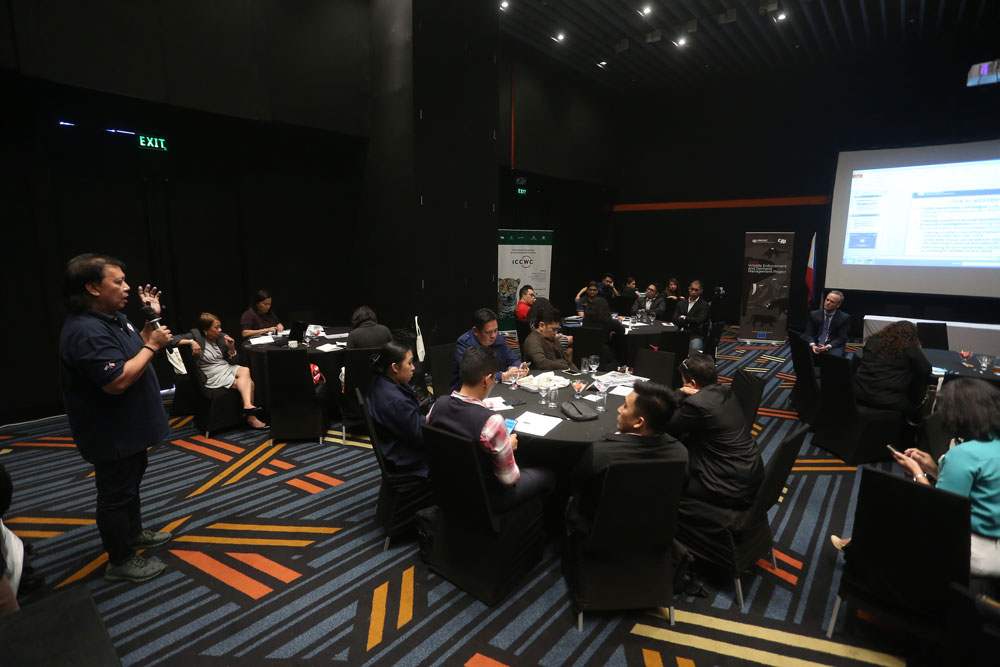Manila, Philippines – Are our institutions ready to respond to wildlife and forest crimes?
This is the key question that law enforcement agents and legal practitioners sought to answer during a two-day workshop organized by the Department of Environment and Natural Resources-Biodiversity Management Bureau (DENR-BMB), with support from the United Nations Office on Drugs and Crime (UNODC) and the Asian Development Bank (ADB)/Global Environment Facility (GEF)-DENR Project on Combatting Environmental Organized Crime in the Philippines.
Held last October 17-18, 2019 at the B Hotel in Quezon City, the “Orientation-Workshop on the International Consortium on Combating Wildlife Crime (ICCWC) Wildlife and Forest Crimes Indicator Framework” aimed to measure the effectiveness of the country’s preventive and criminal justice responses to illegal wildlife trade—an increasingly organized and sophisticated crime involving large numbers of wildlife led by syndicates within and outside the Philippines.

on the International Consortium on Combating Wildlife Crime (ICCWC) Wildlife and Forest Crimes Indicator Framework
held last October 17-18 in Quezon City, Philippines.
The ICCWC Indicator Framework
More than 60 participants from national and regional agencies attended the event. These include representatives from DENR, Bureau of Fisheries and Aquatic Resources (BFAR), Philippine National Police (PNP), Philippine National Police- Maritime Group (PNP-MG), Philippine Ports Authority (PPA), Philippine Coast Guard (PCG), Bureau of Customs (BoC), National Bureau of Investigation (NBI), Department of Justice (DOJ), Cebu Ports Authority (CPA), Office of the Special Envoy on Transnational Crime (OSETC), Philippine Center on Transnational Crime (PCTC), Palawan Council for Sustainable Development (PCSD) and the city governments of Las Piñas, Pasig, Quezon, Butuan, and Cebu.

a brief overview of the state of wildlife and forest crime in the Philippines.
The attendees were asked to rate the questions in the ICCWC Indicator Framework using a facilitated online survey. The Framework consists of 50 performance measures that cover the major components of a desirable law enforcement response to illegal trafficking in wildlife. These indicators were grouped under eight desired outcomes, namely: (1) Proactive enforcement is deterring wildlife crime, (2) Wildlife crime can be detected by law enforcement agencies, (3) Wildlife crime is thoroughly investigated using an intelligence-led approach, (4) Specialized investigation techniques are used to combat wildlife crime as required, (5) There is a strong legal basis to combat wildlife crime, (6) Wildlife crime is prosecuted in accordance with the severity of the crime, (7) Wildlife crime offenders are appropriately penalized, (8) A holistic approach is deployed to combat wildlife crime.

for electronic survey of selected wildlife and forest crime indicator ratings.
The results of the assessment are expected to help enhance the Wildlife Law Enforcement Action Plan (WildLEAP), the country’s roadmap for a strengthened, sustained, and well-coordinated program on wildlife law enforcement, and provide valuable inputs to the National Environmental Law Enforcement or NELE Summit scheduled on March 2020. The result will also serve as a guide for the operationalization of the recently created DENR Environmental Protection and Enforcement Task Force (EPETF) under Special Order No. 2019-579.

and related laws as part of an inter-agency collaborative effort.
According to UNODC, the ICCWC Indicator Framework also enables countries and independent parties to establish a baseline from which to measure progress achieved over time. However, results should not be compared with other countries due to the differences in contexts and capacities.
Illegal Wildlife Trade in the Philippines
The Philippines is one of 17 mega-diverse countries which hosts several thousands of species of plants and animals, many of which are found nowhere else in the world. Unfortunately, each year, the country loses natural resources valued at over 1 billion USD from illegal wildlife trade. This includes revenues that should have been paid by illegal wildlife collectors and traders, the market value of resources involved, their ecological role, and the damage to their habitats.



